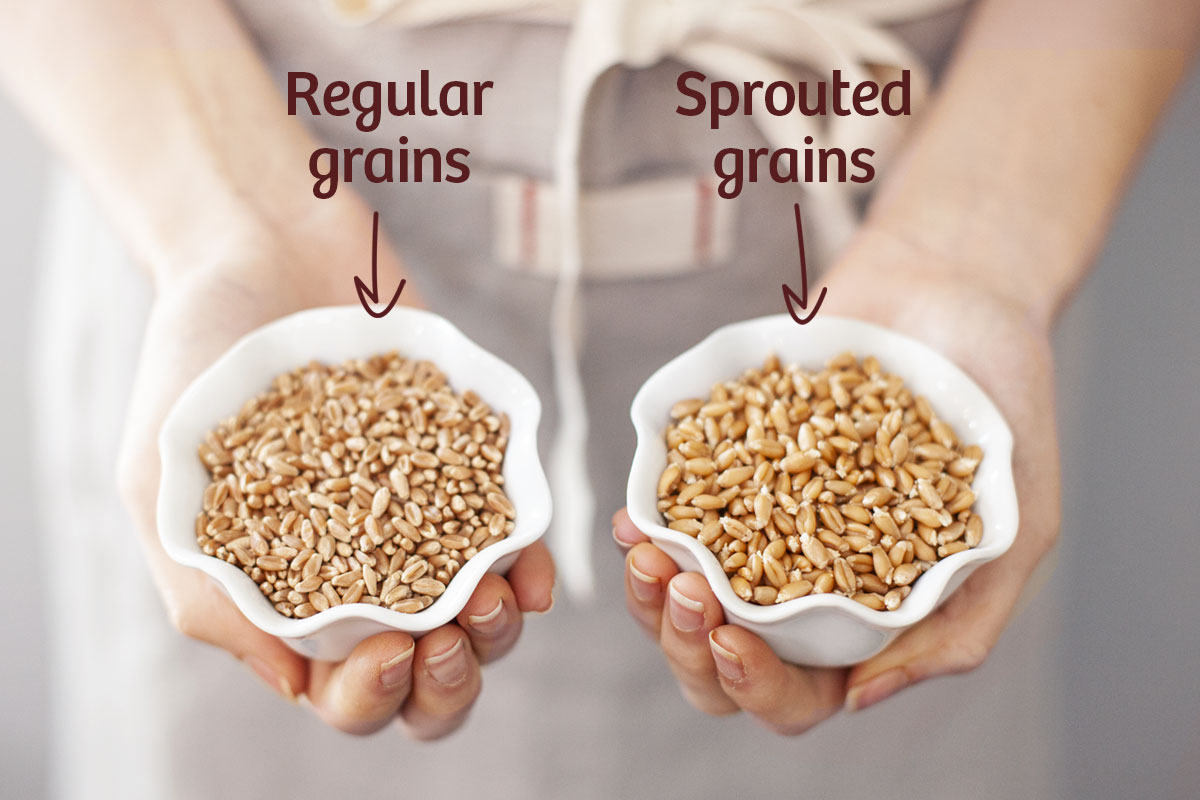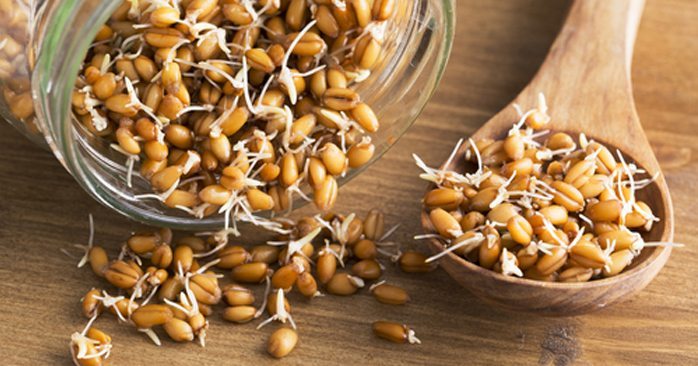Article Why Sprouting is Good for the Gut
Registered Dietitian Desiree Nielsen’s take on why sprouted grains are good for gut health
May 07, 2024

Nutrition can seem a bit confusing: there are just so many trends, conflicting opinions and seemingly endless choices to make! But it doesn’t need to be that way. As a plant-based dietitian, I’m all about embracing the simple swaps.
It’s not the big effort, temporary fixes that make a real impact. Instead, it’s the small, sustainable changes that build a healthier body day after day—like eating more fruits and vegetables or switching to sprouted grain breads.
You might be wondering, ‘Isn’t sprouted grain the same as whole grain?’ It is…and it isn’t. While sprouted grain bread IS whole grain bread, there are significant differences in how sprouted grain breads are made that make them even more nutrient dense, filling, and flavourful than typical whole grain sandwich bread.
Unlocking the Magic of Whole Grains
Whole grain breads are made from whole grain flour, which is finely milled from wheat kernels. Sprouted grain breads are made differently. The wheat kernels are soaked in water until they begin to germinate, which creates a small sprout in the grain.
It can be easy to forget that grains are actually a seed! The sprouting process transforms a wheat kernel from nutrient storage mode into an energy factory—all sorts of enzymes turn on in the grain to unlock the nutrients needed to grow a new plant.
Once a little sprout forms, these sprouted whole grains are gently mashed into a dough and baked into a delicious, nutrient dense bread.

So Why are Sprouted Grains Good for You?
Improved Nutrient Absorption
Because the sprouting process helps to unlock nutrients in the seed for growth, it may enhance the bioavailability of certain nutrients like iron.1
Absorption of minerals in whole grains and legumes is naturally a bit lower because of antinutrient factors like phytic acid. Phytic acid is a naturally occurring substance in seeds and grains that binds to minerals including zinc, iron and calcium and lowers their absorption in the small intestine.1
Soaking, sprouting, and cooking whole grains all help to break the hold phytic acid has on minerals, making them more bioavailable.2
Why are Sprouted Grains Good for the Gut?
Easier to Digest
Sprouting transforms the raw materials in the wheat kernel to mobilize fuel for the grain to grow into a sprout. Starches are broken down into sugars.3 Enzyme inhibitors are neutralized, and proteins are transformed into their amino acid building blocks.
All of this may make the whole grain wheat a bit easier to digest for some.
For example, gluten—which is a protein—is degraded a bit in the sprouting process. And while it still isn’t suitable for those with celiac disease, those with non-celiac wheat sensitivity might feel better eating sprouted products.2,4
Fructans—fermentable carbohydrates that can cause symptoms in those with IBS—are also degraded in the sprouting process so those of us who are fructan intolerant (like me!) may also enjoy sprouted grain breads.5
High in Gut Loving Fibre
Fibre from whole plant foods is a critical factor in digestive and overall health and whole grain wheat is a valuable source of this under-consumed nutrient. Fibre helps improve elimination, promote the healthy turnover of the gut lining and feeds the gut microbiome.6
But it’s not just about the gut.
Eating more fibre is associated with better health outcomes overall, including maintaining healthy blood cholesterol levels.7
Whole grain wheat is very high in fibre and when the grain is sprouted, the concentration of fibre is increased!2 Sprouted grain breads are typically very high in fibre and make it easier to get the fibre you need.

Silver Hills Bakery sprouted grain breads have been a part of my family’s diet for over a decade now. We love the taste…and I love how they make every piece of toast or sandwich we eat even more nutrient dense and satisfying.
Desiree Nielsen is a plant-based registered dietitian, host of the evidence-informed wellness podcast, The Allsorts Podcast, author of 3 bestselling plant-based cookbooks, Eat More Plants and Good for Your Gut—and her latest cookbook, Plant Magic: A Celebration of Plant-based Cooking for Everyone. She lives in East Vancouver with her husband, two kids and an often-neglected vegetable garden.
Learn more about sprouted whole grains!
Check out our What? • Why? • Try! sprouted education series to find out more about the benefits of sprouted whole grains—and learn why sprouted bread is a better-for-you choice any meal of the week!
Scroll down to subscribe to Silver Hills Bakery emails to get articles, healthy plant-based recipes, and subscriber-exclusive content delivered fresh to your inbox.
And invite new ideas to your social feed, too! Like Silver Hills Sprouted Bakery on Facebook, find us on Pinterest, or follow us @silverhillsbakery on Instagram.





